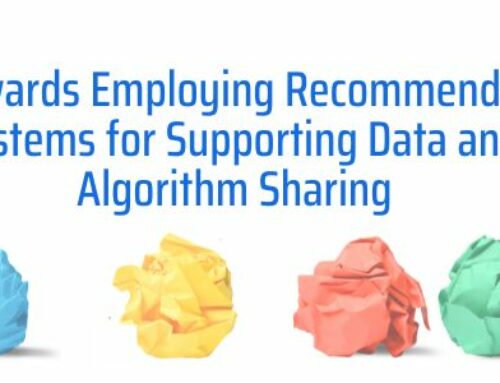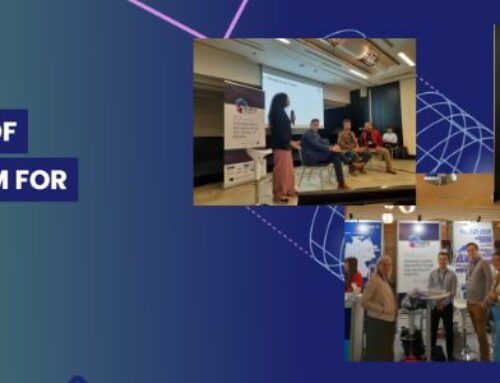The innovation action TRUSTS aims at bringing a federated platform on its way that makes data sharing trustworthy, safe and follows European values and standards. It aspires to exploit the potential of the European data economy and to develop solutions along the given requirements, needs and bottlenecks in place. Luckily, there is already a bundle of existing knowledge so TRUSTS must not start from point zero.
How TRUSTS use cases change the industry
One barrier with high impact in the evolution of data markets is the lack of trust between data aggregators, suppliers and data subjects. There is also a lack of trust in the sharing of data in private and business virtual environments due to the fear of external control or the loss of self-determination through data abuse. Within TRUSTS we frame the theoretical and operational basis for ethical platforms in function of trust and we are creating information, knowledge and transparency. The developments are making data more accessible and exploitable to a wide range of stakeholders, including SMEs.
To derive real-life requirements for the TRUSTS European Data Market and to apply the concepts and reference implementations, the project runs pilots that involve real data value chains with according investment scenarios. Six companies (including two data providers) addressing different use-cases identified as most promising by the consortium, targeting, but not limited to, the financial and operators’ industries:
- Anti-Money Laundering Compliance
The Anti-Money Laundering (AML) use case aims to demonstrate the capabilities of a data sharing platform in providing faster and more accurate detection of financial crime and how enriched data can be securely brokered to interested customers who need to perform AML checks.
- Agile Marketing through Data Correlation
Use case two should validate how big data analytics techniques can provide timely and meaningful information towards targeting profitable customers at a local level.
- Data Acquisition to improve Customer Support Services
The objective of the third use case is to create an out-of-the-box analytics solution for the anonymisation and visualisation of Big Financial Data.

Why are these the most relevant for an EU data market?
The amount of data available and produced every day is exploding. Data has become an important raw material that is of high importance in nearly every industry sector worldwide. Thereby a vital data economy and a successfully working Data-Services Ecosystem in Europe is one of the factors to enable and ensure sustainable employment and growth and thereby societal stability and well-being
To fully unleash the data economy benefits we need to ensure a free flow of data, allowing companies and public administrations to store and process non-personal data wherever they choose in the EU. Therefore, our use cases display three areas where there are challenges with data and data sharing. Take the first use case for example: Financial crime and money laundering offences are on the rise. Many institutions have already automated their procedures, but the current AML systems are mostly rules-based. With increasing numbers of cases, rules-based systems become more complex and with that, an increasing number of cases get flagged for further investigation because of false positive or false negative results. With the AML use case TRUSTS aims to give an opportunity to maximize operational effectiveness to AML detection.
Planning and Setting up the Use Cases (Deliverable 5.1)
In March, the first deliverable reporting on the implementation and testing plan of the TRUSTS use cases has been submitted. It reports the status of the planning, setup and operational management of the demonstration of the TRUSTS platform and summarizes the efforts taken thus far. For example, for each use case test scenarios on a business level are listed defining the scenario steps in terms of the application or service provider as well as the end-user*, like billing and payment, data onboarding and service execution or service usage.
Trials will start in April 2021
Next step will be the actual deployment of the first demonstration phase based on the requirements and conditions that are highlighted along with the available MVP version. During the first testing phase, all obtainable functionalities* e.g., data protection or data as a service and subscribers management will be tested and evaluated.
Deliverable 5.1 is just the start. After every phase of demonstration, the document will be updated at the end of each demonstration phase. The first trial phase will be between April 2021 and December 2021, the second is planned to be finished by August 2022.
* More information about the Functional Requirements are defined in Deliverable 2.2 and are also presented in the Annex section of D5.1
Author: Gianna Avgousti, eBOS Technologies Ltd, Cyprus
Read more:




